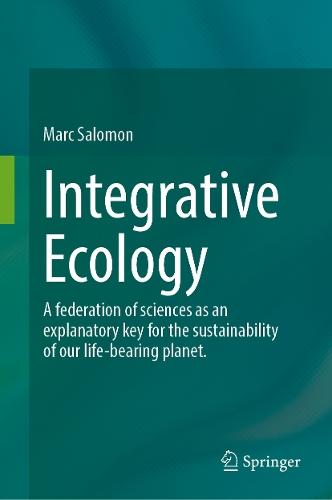Overview
Ecology is traditionally presented as a science explaining a highly diverse range of subjects, for example the biogeochemical cycle of oxygen or the structure of species communities. We also tend to incorporate into ecology environmental degradation inflicted by human activities directly or indirectly upon natural systems and the attempts to prevent or mitigate these destructive trends. While fundamental ecology is a broad scientific discipline dealing with ecosystems through a diverse number of approaches, applied ecology is more a philosophy and body of practices with a focus on society and politics. Applied ecology uses concepts used in fundamental ecology. Although the topics of fundamental ecology appear disconnected, it is often felt that they belong to the same field. This book will focus predominately on fundamental ecology. It comprises different sections arranged in a logical and linear architecture for the reader to follow. The chapters, though, are neatly interlinked to create an explanatory system reflecting the systemic nature of ecology. As even distinguished scientists are uncertain about the scientific character of ecology, it is important to explain rationally why these subjects are all topics of the same discipline, which epistemologically can be proven to be an actual science. As such ecology needs to define its scope and “meta-theory”, a system of interrelated consistent theories uniting many studies regarded empirically as different fields. In this regard, this textbook presents an integrative vision of ecology. The history of ecology will also be addressed to explain the development of the field of ecology and its relationship to human activities and ways of thinking since prehistorical time until the present. In addition, the book presents a typology of the interactions within the biocoenoses, separating trophic relationships from other types of interactions (coevolution, competition, mineralisation), and presents a reflection on the interactions with the abiotic system. This book shows that ecology must be viewed as an integrated system to explain the immensely complex reality of ecosystems in the simplest way possible.
Full Product Details
Author: Marc Salomon
Publisher: Springer International Publishing AG
Imprint: Springer International Publishing AG
ISBN: 9783031906558
ISBN 10: 3031906551
Pages: 438
Publication Date: 24 September 2025
Audience:
Professional and scholarly
,
Professional & Vocational
Format: Hardback
Publisher's Status: Forthcoming
Availability: Not yet available

This item is yet to be released. You can pre-order this item and we will dispatch it to you upon its release.
Author Information
Dr Marc Salomon is a retired associate professor with degrees in applied mathematics and evolutionary biology, two master’s degrees in biomathematics (1979) and evolutionary biology (1982), and a PhD in evolutionary biology (1989). He was an associate professor at Rennes 1 University and later Sorbonne University in Paris. Although he retired in 2022, he is still an active honorary researcher in the Laboratory of Computational and Quantitative Biology at Sorbonne University. His research career focused on evolutionary mechanisms at microevolutionary and macroevolutionary scales. He has supervised PhD theses and is the author of 30 published articles. His research approach is multidisciplinary, integrative, and based on thorough, long-term surveys of natural populations. He has lectured in mathematics, statistics, algorithmics, animal biology and ecology for over three decades. In the frame of these teaching and research activities, he gathered much of the material of this book.



